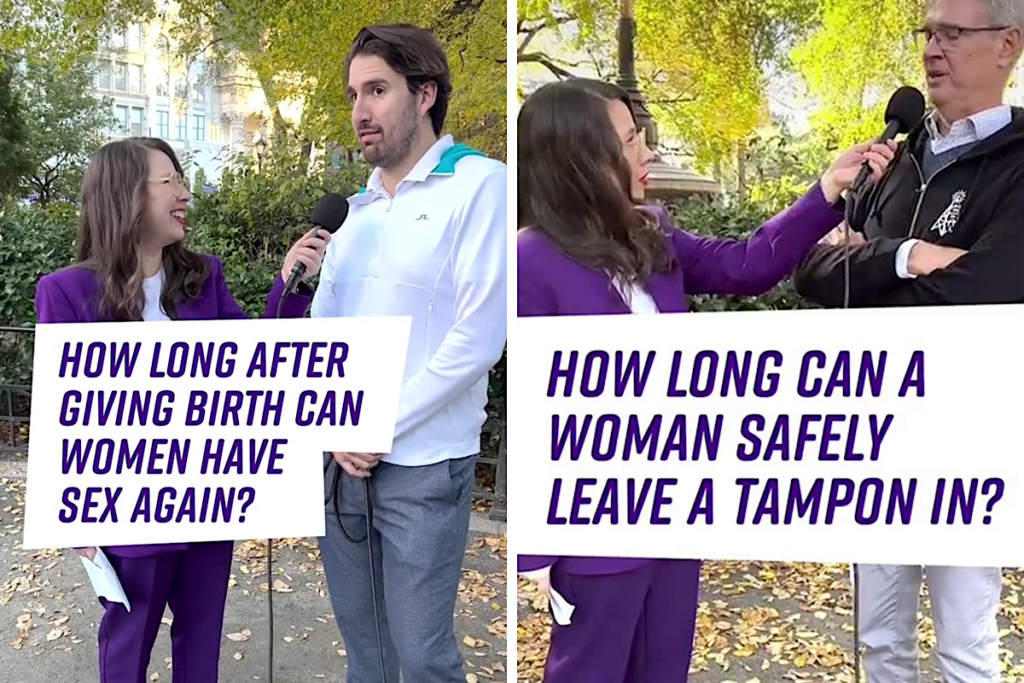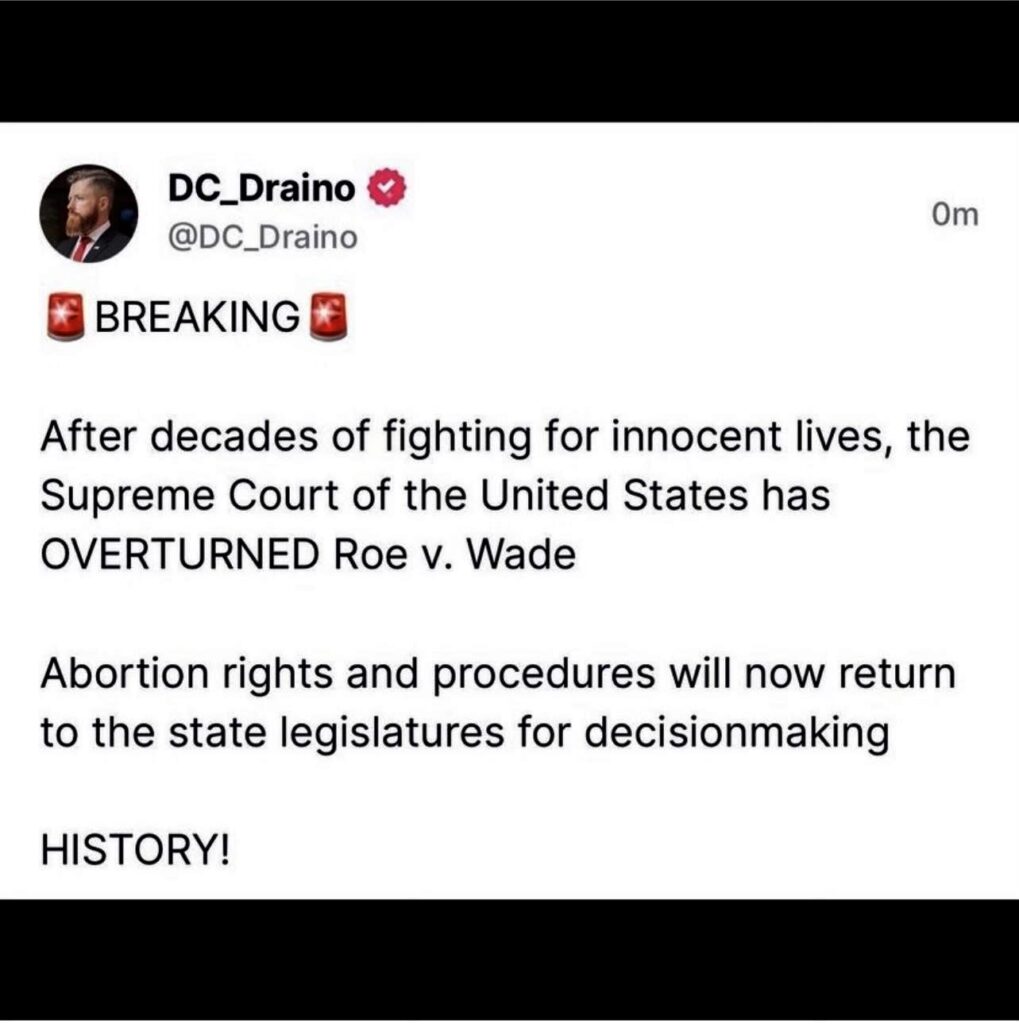Major U.S. businesses used ads and social media to show their support for a woman’s right to choose — while anti-abortion advocates cast the decision as a “huge win” for human rights.
The lives of American women changed dramatically on June 24, 2022, when the U.S. Supreme Court voted to overturn Roe v. Wade, the 1973 case that legalized abortion nationally. The 2022 decision meant that the legal right to an abortion was no longer federally protected, and the decision was left to individual states.
Immediately, more than a dozen U.S. states banned abortion, leaving their residents with no safe options for terminating unwanted pregnancies. The mass media covered this decision instantly, via print, broadcast and online news, social media platforms and digitized advertising. Public support and outcry was also expressed via these media sources, as people across the nation reacted to the ruling. While pro-choice and pro-life arguments have been debated in the media for more than 50 years, the recent Court decision brought forth unexpected forms of expression on these issues, particularly by way of corporate announcements and advertisements, TikTok videos and digital storytelling. We wanted to examine some of the creative ways that pro-life and pro-choice supporters used media to react to the decision to overturn Roe vs. Wade.
Anti-abortion or “pro-life” supporters typically endorse “traditional” conservative values, which generally uphold heteronormative, nuclear families, patriarchal power configurations and conservative religious teachings that are at odds with abortion rights. They believe that human life begins at conception and that a fetus deserves the same legal rights as a fully developed, independently breathing human being. These activists prioritize the rights of the fetus over the rights of a woman carrying the fetus. In contrast, pro-choice supporters prioritize the rights of the person who is already born over the rights of the fetus. They note that there are many reasons why someone might need to terminate a pregnancy, including but not limited to financial reasons, timing, partner related reasons, the need to focus on other children, early detection of a severe disability, or being a victim of sexual violence. Pro-choice supporters see these as valid reasons for getting an abortion and believe women should have the right to privacy and bodily autonomy – rights previously upheld by the Supreme Court in the 1973 Roe v. Wade case.
Both pro-life and pro-choice supporters are passionate about their beliefs, and both used media to express their values. Immediately following the Supreme Court’s ruling, major US businesses showed their support for a woman’s right to choose by releasing statements embedded within their advertising or broadcast via social media. Numerous large corporations such as Google, Amazon, Walmart, Levi-Strauss, Cigna and others publicly announced policies offering to pay for the expenses of women in need of abortions to travel to states where the procedure is legal. An example of a national company to do this was Dick’s Sporting Goods. The CEOs of the company, Ed Stack and Lauren Hobart, released a statement via Twitter which said that the company fully supported a woman’s right to choose and would provide up to $4,000 for a person to travel to a state where abortions were legal.

Other large companies such as Adidas and Snap offered to pay up to $10,000 to help cover travel and lodging expenses if their employees needed to leave the state to get an abortion. These were powerful and unprecedented public statements by corporate America in support of abortion rights.

Additionally, pro-choice supporters deployed storytelling as a medium for demonstrating why women need the right to choose. From hashtagged social media posts to speaking at public protests to posting YouTube or TikTok videos, thousands of women across the country bravely came out publicly and shared their abortion stories. Ms. Magazine, the first national feminist magazine in the US (founded in 1971), recognized the power of storytelling and started the series “Our Abortion Stories” in which women submitted their personal stories to Ms. to be published online and in print. The “Our Abortion Stories” series highlighted the variety of people past and present who have needed abortions, and the compelling and diverse reasons why, as a way to illustrate how abortions have always been critical for women pre and post Roe v. Wade. An example of the emotional nature of these stories is the following submission by a writer who identified herself as “Carol C.”
“I am the mother of three and grandmother of three, but had an abortion in the 1980s before I was ready to start my family,” she wrote. “I have never regretted that heart-wrenching, difficult decision for a single minute…Unfortunately, my grandmother died of a botched illegal abortion—leaving my 2-year-old father and his 4-year-old sister motherless.”
Carol C. not only explained her reasoning for getting an abortion, but also explained the life-threatening dangers of banning abortion. Her story illustrated that making abortions illegal does not stop women from getting them, and that women have always sought methods for ending unwanted pregnancies, often at the cost of their own lives. She was fortunate to live in a period when she had the legal right to make a choice that was best for herself and her family. Her grandmother did not have the right to choose, resulting in her untimely death and the orphaning of her two small children.
Another example of the media utilizing storytelling in support of the pro-choice position was carried out by international news agency Reuters. Following the overturning of Roe v. Wade, Reuters asked readers to share their abortion stories, quickly receiving more than 40 submissions. Reuters chose nine of these stories and posted them to a Twitter thread called “Share Your Story” on August 10, 2022.

One story posted to the “Share Your Story” thread was from a woman named Luisa who was in her mid 30s at the time of her abortion. Luisa spoke about how her abortion helped her escape an abusive relationship, stating: “He moved in with me and things rapidly deteriorated. He would get physically violent, verbally violent. I missed two periods and knew I did not want to have this man’s child because it would tie me to him forever, and I wanted to get out of the relationship.”
If Luisa had not been able to get an abortion, she would have been permanently connected to her abuser. Following the abortion, she evicted her partner and ordered a restraining order against him. Not only did the abortion save Luisa from abuse, but it prevented a child from being born into an abusive household.
While Ms. Magazine’s “Our Abortion Stories” was published in an article format and Reuters’ “Share Your Story” was posted to Twitter via voice recorded stories, both storytelling techniques used the emotion of first person narrative to inform readers and listeners about why choice matters.
When Roe v. Wade was overturned, pro-choice activists pointed out the irony that most lawmakers voting on abortion rights are male, despite the fact that most men know relatively little about the female reproductive system. While women comprise more than half of the global population (51%), males in the United States and elsewhere comprise the vast majority of lawmakers. In reaction to this, the TikTok series “Roe v. Bros” was created, going viral soon after. With the tagline “The game show where we learn how much men know about women’s bodies,” the series host, Tiffany Springle, took to the streets of New York City asking men basic questions related to female reproduction. Almost every man interviewed got the answers wrong and these answers were often so ridiculous that they were comical. Tiffany ended each video by asking the men if they were registered to vote (they almost always said yes), highlighting the reality that such men make decisions at the local and national level on something they know little about.

“Roe v. Bros” used humor to reveal the larger political issue at hand regarding abortions and women’s rights. These TikTok videos made millions of people stop and think about a very serious topic. The point of the “Roe v. Bros” series was not to embarrass the men who participated or to look down upon them. Rather, it was to spark conversations on the need to educate people about the realities of women’s reproduction and, inherent in this, the need for women to have control over their own reproductive decisions.
Meanwhile, pro-life rallies formed to celebrate the Supreme Court’s overturning of Roe v. Wade. From social media to news shows to print articles, pro-lifers expressed their happiness at the decision:

They described the decision as a “huge win” for human rights. Some said that they would support pregnant women and “walk with” them through their unplanned pregnancies, helping them to “do better” than choosing abortion. One woman interviewed by WXYZ- News in Detroit said that the overturning of Roe v Wade was “the first step of many to protecting human rights and ultimately doing better for women.” The main consensus among pro-lifers across all media platforms following the reversal of Roe v. Wade was positivity and optimism.
Rogan O’Handley, conservative political influencer (@DC_Draino), spoke out to his millions of social media followers with reactions to the overturning of Roe v. Wade. In his tweet announcing the overturning, he used common pro-life terminology to refer to the fetus, such as “innocent lives.” This along with the all-caps exclamation “HISTORY!” demonstrated his excitement that abortions in many states would be banned.


O’Handley also used his platform to respond to companies offering to pay for their employees to get abortions in other states, arguing that companies were offering this benefit only because it would be a lot cheaper than paying for maternity leave. O’Handley used a meme to add humor to his assertion that companies had their own profitability in mind, rather than the health of women. This aided the Pro-Life stance by claiming that companies who supported abortion rights did not have women’s best interests in mind, but were instead acting selfishly in order to keep women working and save money.
Many conservative governors, organizations and businesses released public statements via digital media on June 24, 2022 informing the public about which side of the Supreme Court decision they were on. In the official statement of the South Carolina Republican Party, the chairman, Drew McKissick, stated “Roe v. Wade overturned is a victory for life everywhere.” Like many pro-lifers, he noted the rights of “the unborn” and discussed this as a “victory” for women, stating that “the womb matters.” Since South Carolina is a largely Republican state, McKissick’s statement not only highlighted the excitement of Roe v. Wade’s reversal within the Republican Party but also for the majority of South Carolina voters. This statement was circulated via Facebook, Twitter and Instagram, reaching millions of people.
These are only a few examples of the many ways in which pro-life and pro-choice activists used media to indicate and promote their perspectives on abortion politics, with pro-lifers framing the overturning of Roe v. Wade as a momentous victory for women and pro-choice activists framing it as a tremendous step backwards for women’s rights. We expect to continue to see this issue depicted and debated in media around the country.
Resources:
- Moulton, Michelle. “Our Abortion Stories: ‘If He Had Found out I Was Pregnant, He Would Have Kidnapped Me and the Baby’.” Magazine, 1 Aug. 2022, https://msmagazine.com/2022/07/29/abortion-stories-pre-post-roe-v-wade-rape/.
- Piper, Kirstie. “Pro-Life and pro-Choice: What Does It Mean?” Focus on the Family, 3 Aug. 2022, https://www.focusonthefamily.com/pro-life/abortion/pro-life-pro-choice/.
- “We Asked You, Our Readers, to Share Your Experiences of Getting an Abortion While Roe v. Wade Was Intact.” Twitter, Twitter, 10 Aug. 2022, https://mobile.twitter.com/Reuters/status/1557369394937925643.
- “Roevbros on TikTok.” TikTok, 2022, https://www.tiktok.com/@roevbros/video/7161580460101995822?is_from_webapp=v1&item_id=7161580460101995822&lang=en.
- The social media reaction to Roe v. Wade getting overturned. ListenFirst Media. (2022, July 7). Retrieved from https://www.listenfirstmedia.com/blog-the-social-media-reaction-to-roe-v-wade-getting-overturned/
- https://www.youtube.com/watch?v=LzV1M7CIxSw&ab_channel=WXYZ-TVDetroit%7CChannel7 – Pro – Life supporters respond to the overturning of Roe v Wade
- Petersen, M. (2022, June 24). Companies vow to help employees access abortion after Roe vs. Wade is overturned. Los Angeles Times. Retrieved from https://www.latimes.com/business/story/2022-06-24/companies-vow-to-help-employees-access-abortion-after-roe-v-wade-is-overturned
- Roe vs Wade. Diffen. (n.d.). Retrieved from https://www.diffen.com/difference/Roe_vs_Wade
- Grace, Asia. “TikTok Game Show ‘Roe v. Bros’ Reveals NYC Men Know Nothing about Women.” New York Post, New York Post, 14 Nov. 2022, https://nypost.com/2022/11/11/tiktoks-roe-v-bros-reveals-nyc-men-know-nothing-about-women/.


